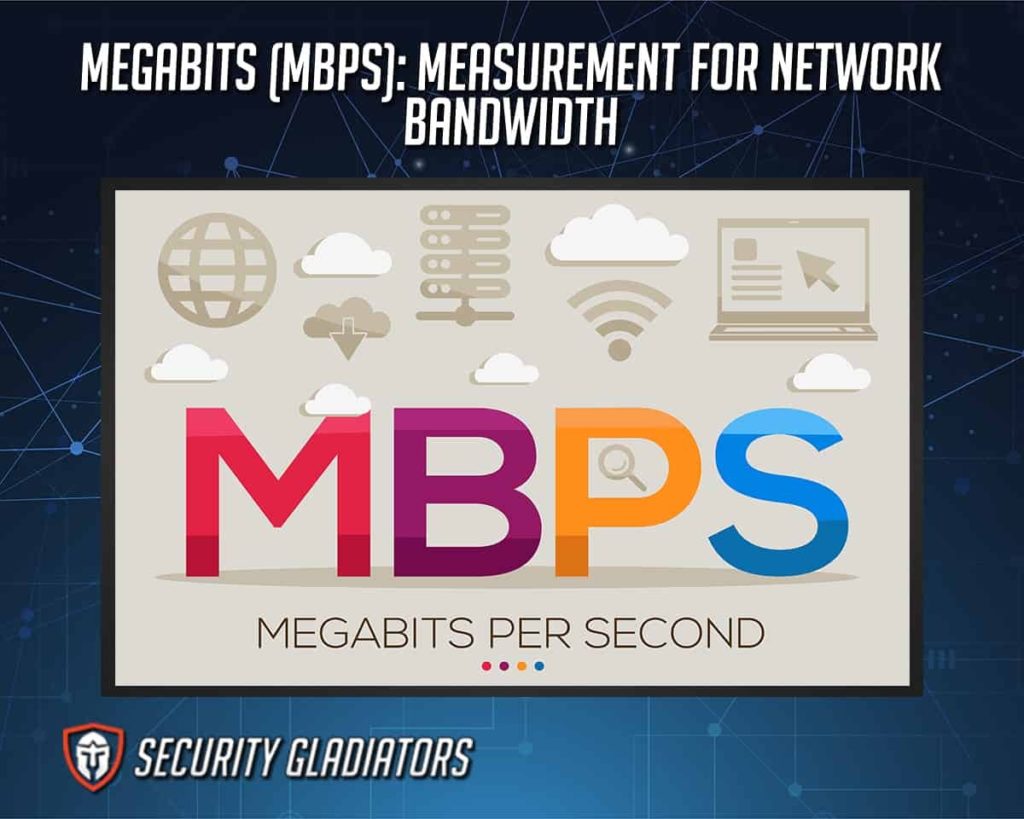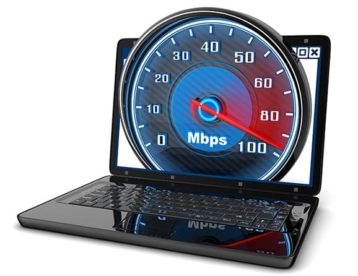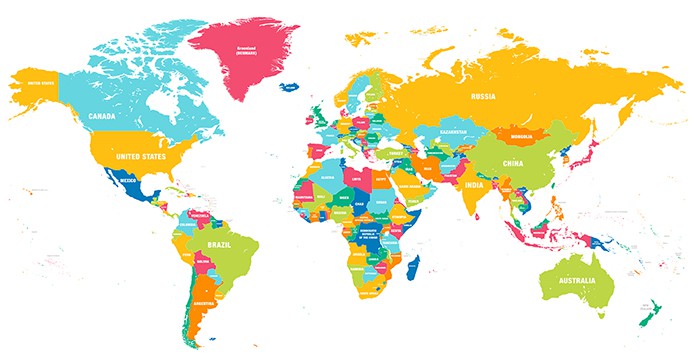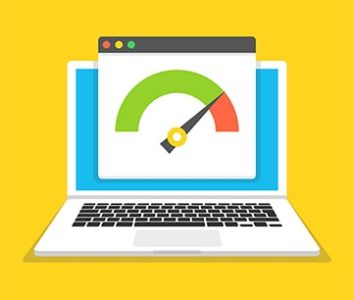Megabits measure network speed for data transferring from one point to the other. A high rate of megabits per second (Mbps) indicates a faster internet connection. In common usage, bits denote speed, which is why Megabits frequently refer to network speed. A byte represents the storage or capacity of a file.
One megabit corresponds to 1 million bits or 125 kilobytes, per the typical megabits definition. But how do megabits work? Internet users who understand the relationship between bandwidth and internet speed will be able to explore fast browsing. For example, if a user needs to download a 5,000 megabyte (MB) file from the internet, a high broadband speed of 50 or 100 Mbps will facilitate a faster download than a broadband speed of 5 Mbps. People can enjoy good internet speeds between 25 and 100 Mbps. However, depending on use, 25 Mbps can allow up to two devices to simultaneously stream content, browse the web and other basic internet activities.

Table of Contents
What is Mbps?

Megabits per second (Mbps) is the unit used to measure connection speed per second. A megabit is a combination of 1 million bits. Likewise, 8 megabits make 1 megabyte, which means to download a 1 MB file from the internet quickly, the broadband connection must be 8 Mbps.
In other words, an internet user’s available network speed or Mbps determines the rate of downloads and uploads.
When was the Term Mbps First Used?

According to the theory of internet evolution, the internet was initially designed for a specific purpose, not for the entire human population. The U.S. Advanced Research Projects Agency (ARPA) conducted experiments with the contemporary internet in the 1960s. In 1969, the organization introduced 56 kilobits per second (Kbps) for research only to government agencies and universities. The first use of the term Mbps occurred in 1988 when 56 Kbps was upgraded to 1.544 Mbps.
How does Mbps Work?
The number of megabits per second (Mbps) indicates the data transfer rate available to internet users. A clear understanding of how megabits per second (Mbps) function will aid in establishing the required network speed to download and upload files. Data transfer speed is typically measured in terms of the speed of light and a combination of insignificant units (bits). Firstly, Mbps is a speed-related unit primarily used for the internet. Also, the transfer speed is estimated in seconds, which indicates the number of bits that ran in one second.

As previously stated, 8 Mbps is equivalent to 1 MB. Hence, to transfer a 1 MB file in one second, 8 million bits are necessary. Consider sharing a 2 MB music file over a 1 Mbps connection. Accounting for the network speed, how many seconds will this transfer likely take? 8 Mbps equals 1 MB, so the answer is 2 seconds.
Alternatively, if a user desires to transfer a 2 MB file in 1 second, 16 Mbps might work.
What Mbps is Good for VPN Use?
Virtual private networks (VPNs) typically slow down internet speeds by at least 10%, necessitating additional resources. When using a VPN, a minimum of 10 to 12 Mbps is sufficient for routine tasks, such as checking emails and browsing the internet. Moreover, 40 Mbps or above bandwidth is ideal for streaming and gaming.

First, what is a VPN?
A VPN encrypts users’ network traffic to keep internet activities private and secure. However, internet performance may be affected because the technology encrypts users’ network communications. Consequently, if a user’s connection speed is 40 Mbps before a VPN, the speed may drop to 30 Mbps after connecting to a VPN.
What is a Good Internet Speed in Mbps?
Above 25 is a good internet speed Mbps. However, internet speed also relies on how an individual uses the internet. For some users, a bandwidth of 25 Mbps may be sufficient, while gamers may require a minimum of 100 Mbps to experience a good connection.
So, what is a good internet speed? A decent internet speed matches the needs of users’ web browsing. Additionally, users should consider aspects such as the number of people sharing the same bandwidth and the purpose of the internet use, such as gaming.
What is a Good Download Speed and Upload Speed?
A good download speed is 100 Mbps, whereas a good upload speed is 10 Mbps or more. Users can stream media and make video calls with 100 Mbps. However, as the number of users rises, the demand for internet speed may increase to facilitate a quicker browsing experience.
How Many Mbps are Required for Video Streaming?
To enjoy fast browsing on whatever streaming service you use, you’ll need an internet speed of about 25 Mbps. Video streaming is available in various qualities and formats, which may affect the necessary Mbps. Additionally, running a concurrent connection while streaming video affects the Mbps.

For instance, Netflix streamers might need 3 Mbps for quality streaming and 5 Mbps for HD streaming. When numerous users are connected, the amount of Mbps also required increases.
How Many Mbps are Required for Social Media and Surfing the Web?
While using the internet and social media, people can participate in a variety of activities. The speed needed to check emails, chat and access the web takes at least 1 Mbps. To have a smooth online gaming experience, individuals may need download speeds of 1–3 Mbps. People need at least 3 Mbps to stream SD video and at least 8 Mbps to stream HD video.
Pro Tip:
At least 50 Mbps is a good starting point for internet users who need to download large files.Which Country has the Most Mbps?
There are several variables to consider when attempting to pinpoint the fastest internet available. Other infrastructure must be considered, such as users’ location and devices.

To establish the fastest (and slowest) internet speeds in the world, researchers have categorized some countries as having fast speeds and others as having slow rates. Jersey, Liechtenstein and Iceland are among the countries with the highest Mbps.
How Accurate is an Internet Speed Test?

The precision of internet speed tests can be a subject of debate. During speed tests, just a portion of the network is measured and the nearest server site is selected. As such, the results of a speed test may not accurately reflect the browsing speed of a given network.
In addition, internet speed is dependent on elements such as the user’s equipment, location and bandwidth as provided by internet service providers. When all of these elements are considered, the accuracy of the internet speed test in estimating overall speed performance may be compromised.
Why are Internet Speeds Measured in Megabits per Second Rather than Megabits per Second?

Internet speeds are measured in megabits per second instead of megabytes per second because internet transmission is measured in bits. Additionally, megabits determine the rate at which communication occurs per second. This allows internet users to determine the effort required for quicker downloads.
Megabytes per second is a significant amount of bits used to describe the total number of sent bits. Megabytes are mainly used to measure file size.
What are the Differences between Megabits and Megabytes?
While megabits and megabytes may sound similar, these are distinct units of measurement. Megabits are used to assess the speed of the internet over time, while megabytes are used to measure the size of files and hard drives.
Note:
In addition, megabits are denoted as Mb and megabytes as MB. Another distinction is that a byte is composed of millions of bits. Eight megabits are comparable to 1 megabyte.Is Mbps a Type of WiFi?
No, Mbps is not a type of WiFi. Rather, Mbps is a unit measuring the speed of a given WiFi network’s bandwidth. If a WiFi network has a high Mbps, that means the connection is fast.
Does a VPN Affect Mbps Speed?
Yes, a VPN can impact Mbps speeds. VPNs typically reduce internet speeds by 10% to 20%. A VPN could reduce a 100 Mbps internet connection to 70–80 Mbps. Before connecting to a VPN, internet users must understand the network capacity. If the network speed is already slow before, using a VPN may decrease the total browsing performance.

